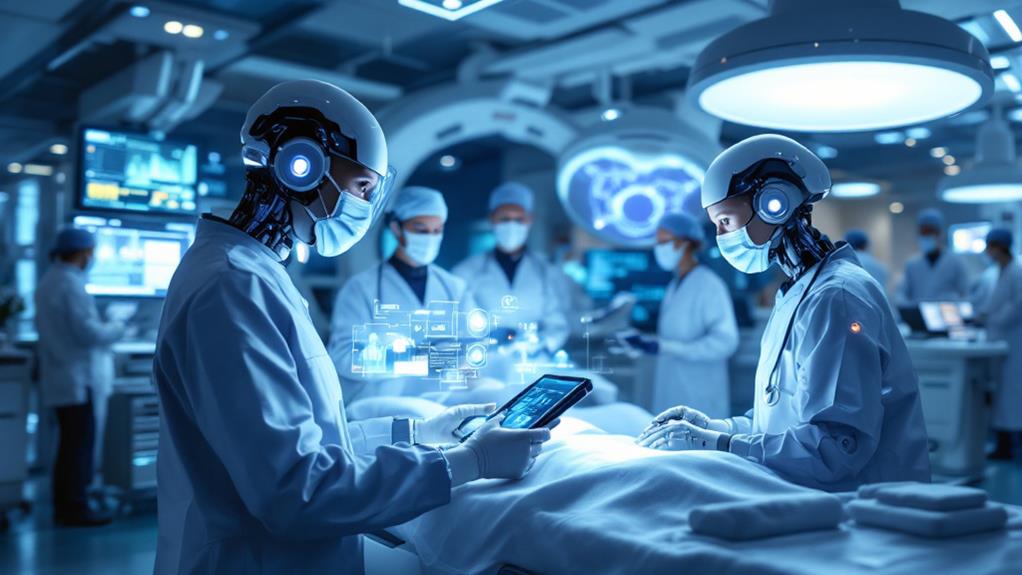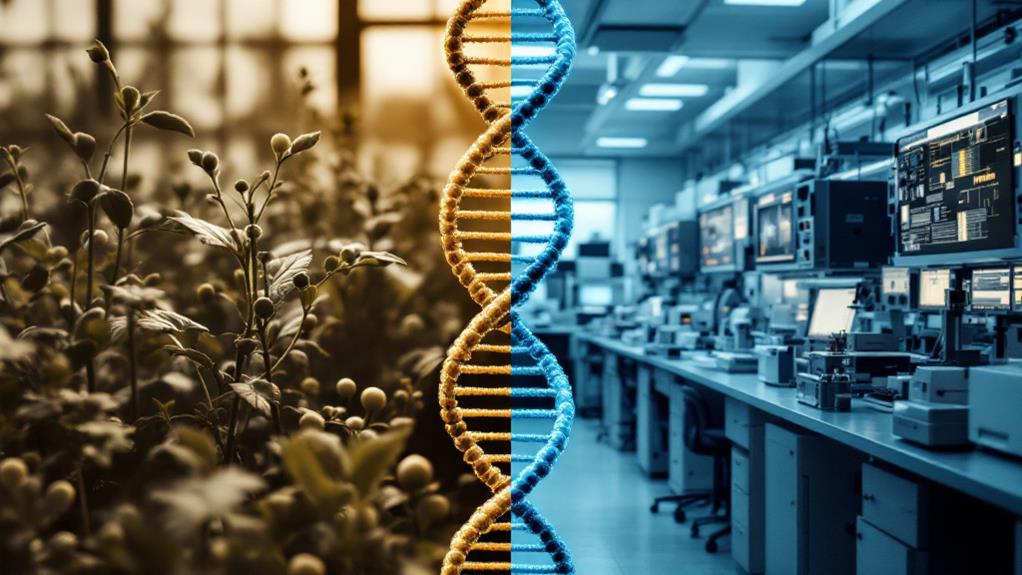An Introduction to Medicine: From Ancient Remedies to Modern Practices

Medicine's evolution spans millennia, from ancient civilizations' herbal remedies to today's cutting-edge technologies. You'll find that early practices often blended spirituality with observation, while medieval times saw a surge in religious influence. The Renaissance and Enlightenment periods marked a shift towards empirical research, pioneering the way for modern medicine. The 19th and 20th centuries brought revolutionary breakthroughs like vaccines, antibiotics, and advanced surgical techniques. Now, you're witnessing a new frontier where AI, telemedicine, and personalized treatments are reshaping healthcare. As you investigate this captivating expedition, you'll uncover how each era has contributed to our current understanding of healing and wellness.
Ancient Medical Practices
Throughout history, ancient civilizations developed diverse medical practices to treat ailments and improve health. You'd find that many of these practices were based on a combination of observation, spiritual beliefs, and early scientific understanding.
In ancient Egypt, you'd see physicians using herbal remedies to treat various conditions. They'd prescribe herbs like garlic for heart problems and aloe vera for skin issues. The Egyptians also developed surgical techniques and were among the first to use splints for broken bones.
Ancient Greek medicine introduced the humoral theory, which you'd recognize as the belief that the body contained four humors: blood, phlegm, yellow bile, and black bile. Physicians would attempt to balance these humors through diet, bloodletting, and other treatments.
In ancient China, you'd encounter practices like acupuncture and moxibustion, which are still used today. Traditional Chinese medicine focused on maintaining harmony between the body's crucial energy (qi) and the environment.
Ancient Indian medicine, known as Ayurveda, emphasized the importance of diet, exercise, and herbal treatments. You'd find that many of these practices continue to influence modern alternative medicine approaches.
Medieval Medicine
In light of the fall of the Roman Empire, medieval medicine in Europe took a turn towards religious influence and superstition. You'd find that the Church played a significant role in healthcare, with monasteries becoming centers for medical knowledge and treatment. Physicians of this era often relied on a combination of prayer, astrology, and ancient texts to identify and treat illnesses.
During this period, you'd encounter various medical practices that might seem bizarre today:
- Bloodletting techniques were widely used to balance the body's "humors"
- Herbal concoctions were prescribed for ailments, some of which are still used in modern medicine
- Trepanning, the practice of drilling holes in the skull, was believed to cure mental disorders
You'd notice that while some advancements were made, such as the establishment of the first medical schools and hospitals, many treatments were based on misguided beliefs. The four humors theory, which suggested that imbalances in bodily fluids caused illness, dominated medical thinking. Despite its flaws, medieval medicine laid the groundwork for future scientific revelations and the eventual development of modern medical practices.
Renaissance and Enlightenment
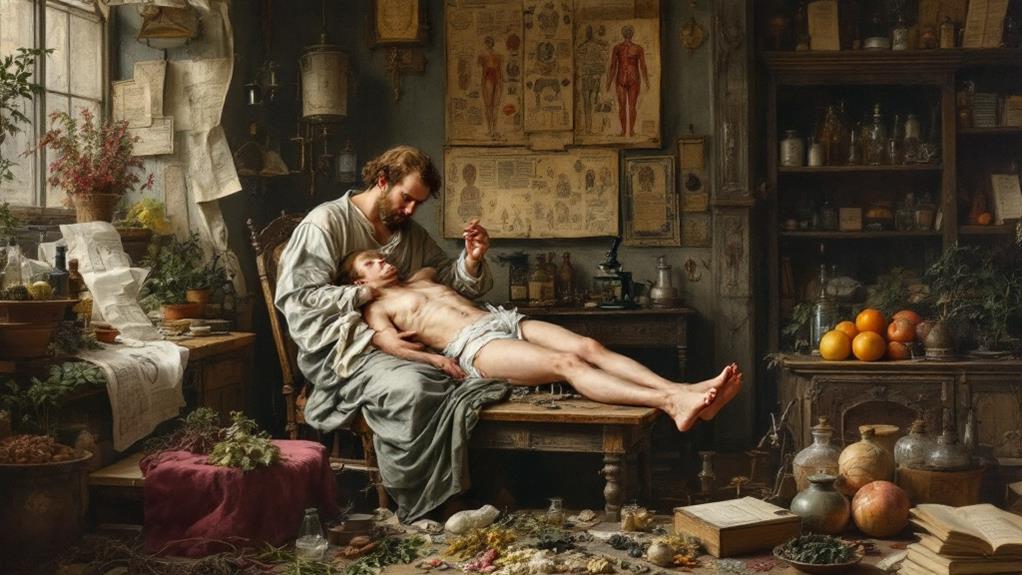
The Renaissance and Enlightenment periods marked a crucial shift in medical understanding and practice. As you investigate this era, you'll uncover how the scientific revolution transformed medicine from a largely superstitious practice to one based on observation and experimentation.
During the Renaissance, anatomists like Andreas Vesalius challenged long-held beliefs by conducting detailed human dissections. Their work laid the foundation for a more accurate understanding of the human body. The era of exploration also brought new medicinal plants and treatments from the Americas and Asia, expanding the pharmacopeia available to European physicians.
The Enlightenment further advanced medical knowledge through empirical research and rational thinking. You'll find that figures like William Harvey, who described blood circulation, and Anton van Leeuwenhoek, who observed microorganisms, made pioneering discoveries. This period saw the development of new medical instruments, such as the microscope, which allowed for more precise observations.
As you scrutinize this era, you'll notice how these advancements set the stage for modern medicine, shifting focus from balancing humors to understanding specific diseases and their treatments.
The Birth of Modern Medicine
Building on the scientific advances of the Renaissance and Enlightenment, the 19th century ushered in the birth of modern medicine. This period marked a significant shift from traditional practices to evidence-based approaches. The scientific revolution had laid the groundwork for critical thinking and empirical observation, which now found their way into medical practice.
You'll find that this era saw the gradual decline of humoral theory, which had dominated medical thought for centuries. Instead, doctors began to focus on specific diseases and their causes. The evolution of medical knowledge accelerated, leading to pioneering discoveries in various fields.
Three key developments that shaped modern medicine during this time were:
- The invention of the stethoscope by René Laënnec in 1816
- The introduction of anesthesia in surgical procedures in the 1840s
- The development of germ theory by Louis Pasteur and Robert Koch in the 1860s and 1870s
These advancements revolutionized diagnosis, treatment, and our understanding of disease transmission. As you investigate the birth of modern medicine, you'll see how it laid the foundation for the healthcare practices we rely on today.
Medical Advances in the 19th Century
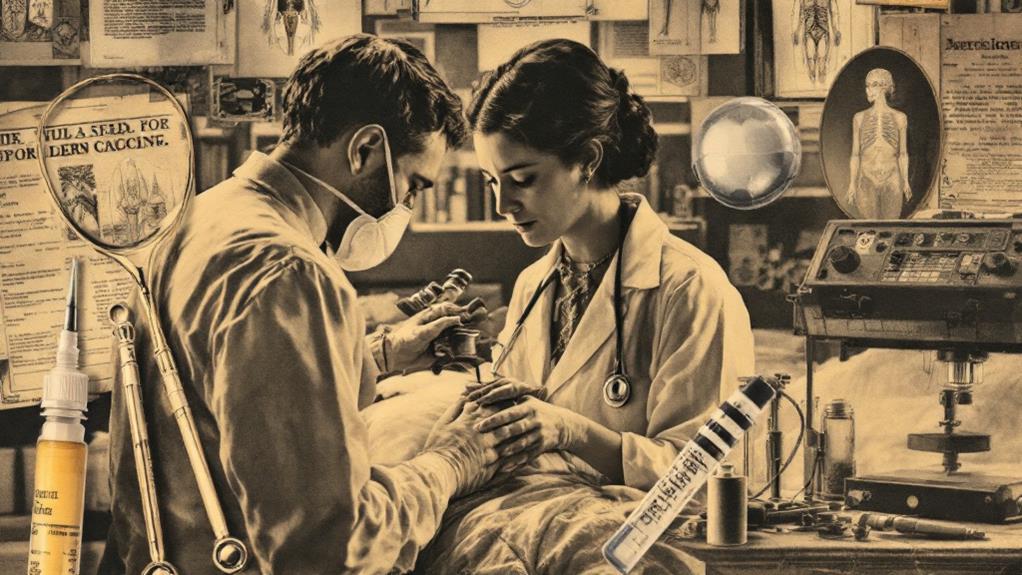
Advancing at an extraordinary pace, medical knowledge and practice underwent a significant transformation during the 19th century. You'd have witnessed groundbreaking discoveries that revolutionized healthcare and saved countless lives.
Vaccination discoveries marked a turning point in disease prevention. Edward Jenner's smallpox vaccine, introduced in 1796, paved the way for widespread immunization programs. Louis Pasteur later developed vaccines for anthrax and rabies, furthering our understanding of germ theory and immunity.
Surgical anesthesia revolutionized the field of surgery. You'd no longer fear excruciating pain during operations, thanks to the introduction of ether and chloroform. This advancement allowed surgeons to perform more complex procedures with greater precision and care.
Other notable developments included the stethoscope, invented by René Laennec, which improved diagnostic capabilities. Florence Nightingale's work in nursing and hospital sanitation drastically reduced mortality rates. The revelation of X-rays by Wilhelm Röntgen in 1895 transformed medical imaging.
These advancements laid the foundation for modern medicine, improving patient care and our understanding of human health. You'd have seen a dramatic shift from traditional remedies to evidence-based practices during this formative century.
20th Century Medical Breakthroughs
Following the pioneering advances of the 19th century, medical science continued its rapid evolution into the 20th century. You'd be amazed by the transformative breakthroughs that occurred during this time. Disease eradication efforts gained momentum, with the World Health Organization leading global campaigns against smallpox, polio, and other devastating illnesses.
Pharmaceutical innovations revolutionized patient care. You now had access to life-saving antibiotics, vaccines, and other drugs that dramatically improved health outcomes. Researchers uncovered treatments for conditions previously considered untreatable, giving hope to millions worldwide.
Key 20th century medical breakthroughs include:
- The identification of penicillin in 1928
- The development of the polio vaccine in 1955
- The first successful organ transplant in 1954
These advancements weren't limited to drugs and vaccines. You'd also benefit from new diagnostic tools like X-rays, MRIs, and CT scans. Surgical techniques improved, with minimally invasive procedures becoming more common. The understanding of genetics advanced rapidly, laying the foundation for personalized medicine. By the century's end, you'd experience healthcare that was unimaginable to your grandparents, with longer life expectancies and better quality of life.
Technology in Healthcare
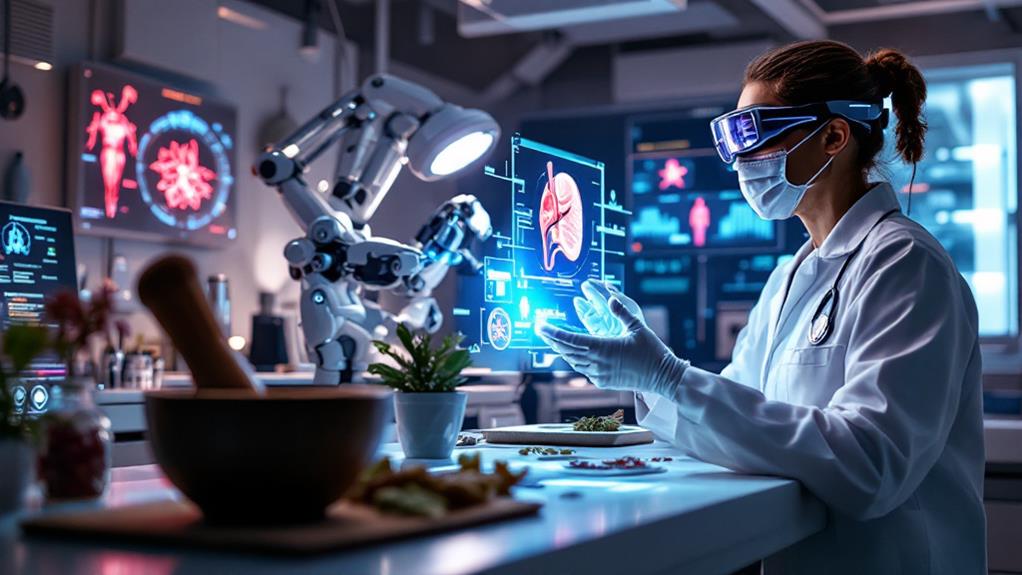
How has technology revolutionized healthcare in recent decades? You've likely witnessed the rapid transformation of medical practices through digital innovations. Telemedicine advancements have made it possible for you to consult with healthcare professionals remotely, eliminating geographical barriers and improving access to care. You can now monitor your health in real-time using wearable devices that track critical signs and alert you to potential issues.
Digital health innovations have streamlined medical record-keeping, allowing your doctors to access your complete medical history instantly. This improves diagnosis accuracy and treatment effectiveness. Artificial intelligence is being used to analyze vast amounts of medical data, helping to identify patterns and predict disease outcomes. You might benefit from personalized treatment plans based on your genetic profile, thanks to advancements in genomic medicine.
Robotic surgery has enhanced precision in complex procedures, leading to faster recovery times and reduced complications. 3D printing is revolutionizing prosthetics and organ transplantation, offering custom-fit solutions customized to your unique needs. As technology continues to evolve, you can expect even more innovative developments that will further transform your healthcare experience.
Global Health Challenges
Numerous global health challenges continue to impact populations worldwide, despite advancements in medical technology. You'll find that issues like infectious diseases, chronic conditions, and environmental health threats persist across borders. Global health equity remains a pressing concern, with disparities in access to healthcare, resources, and education affecting millions.
Pandemic preparedness has become a top priority for health organizations and governments alike. You've witnessed firsthand how quickly diseases can spread in our interconnected world. To address these challenges, healthcare professionals and policymakers are focusing on:
- Strengthening healthcare systems in low and middle-income countries
- Improving surveillance and early warning systems for disease outbreaks
- Enhancing global cooperation and knowledge sharing
You'll notice that addressing global health challenges requires a diverse approach. It's not just about treating diseases but also tackling underlying social, economic, and environmental factors. By working together and leveraging technology, we can make substantial progress in improving health outcomes worldwide. Remember, your actions and choices can contribute to global health efforts, whether through supporting health initiatives or adopting sustainable practices in your daily life.
Future of Medicine
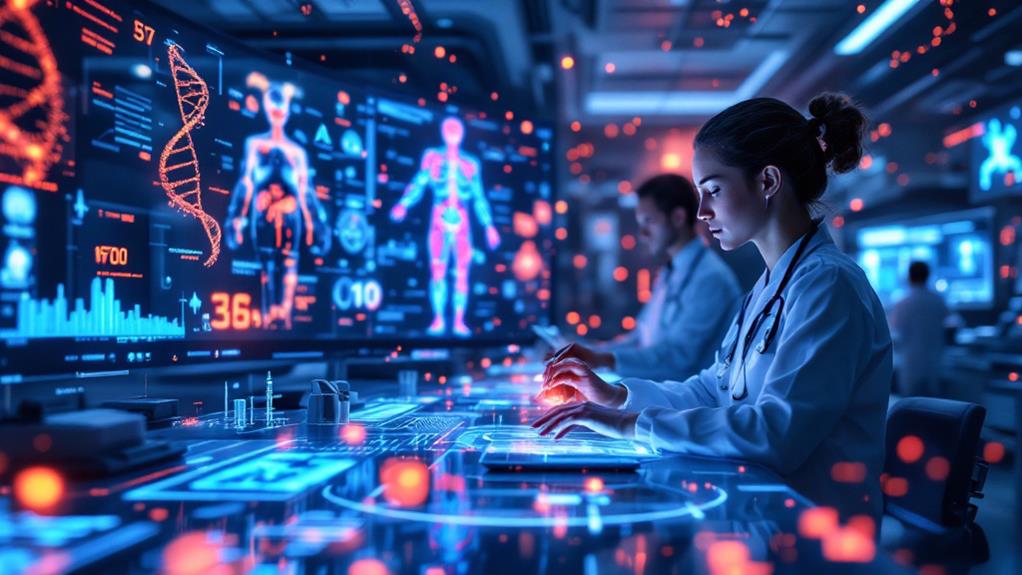
On the horizon of medical science, the future of medicine promises pioneering advancements that will revolutionize healthcare as we comprehend it. You'll witness a shift towards personalized healthcare, where treatments are customized to your unique genetic makeup. This approach will drastically improve efficacy and reduce side effects, making medicine more precise than ever before.
Telemedicine will become increasingly prevalent, allowing you to consult with doctors remotely. You'll have access to expert medical advice from the comfort of your home, reducing the need for in-person visits and improving healthcare accessibility in rural areas.
Artificial intelligence will play an essential role in diagnostics and treatment planning. You'll benefit from faster, more accurate diagnoses as AI systems analyze vast amounts of medical data. Robotics will enhance surgical precision, leading to less invasive procedures and quicker recovery times.
Regenerative medicine and stem cell therapies will offer new hope for treating previously incurable conditions. You may see organs grown in labs, eliminating long transplant waiting lists. Gene editing techniques will allow doctors to correct genetic disorders before they manifest, potentially eradicating inherited diseases.
